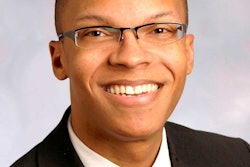As a scholar on the forefront of the emerging field of Latino political affiliation, Victoria DeFrancesco Soto has become highly sought after by media eager to gauge the voting behaviors and political influence of the country’s largest and fastest growing minority group.
When she’s not teaching courses on political marketing and American politics, DeFrancesco Soto serves as a regular political analyst for CNN en Espanol and has provided political insight on “The Today Show,” “The Situation Room,” NPR and FOX on topics ranging from the DREAM Act to Sonia Sotomayor’s Supreme Court confirmation to the contentious 2010 primary elections in Arizona and Florida. She’s also a regular blogger for the Huffington Post and Politico’s ARENA.
For DeFrancesco Soto, punditry is an extension of teaching. “Whether you’re a student sitting in my first row or a stay-at-home mom cooking dinner and listening to me on the radio,” she says, “I see it as the same.”
Her research on how ethnic group identity shapes political preferences led her to the burgeoning field of Latino political affiliation.
“I’ve always been fascinated by how we identify ourselves and how [that affects how] we view the political world,” she says. As part of this work, DeFrancesco Soto studied how Latinos evaluate Latino candidates across parties. Because many Latino immigrants aren’t socialized in the United States, they don’t have partisan socialization that other Americans do, she says. “Out of the gate, Latinos don’t have that anchor” of longtime family political affiliations.
She has also published research on Black-Latino relations in the South following dramatic Latino population growth in that region, co-conducted a study on the role of campaign advertisements directed at Latino voters and is part of a national immigration project that examines how Americans perceive “cultural threat.”
“There have only been a few people working on topics relevant to the Latino community, but it was relatively small and at the edge. It’s now moving toward the center,” says her mentor John Aldrich, the Pfizer-Pratt University professor of political science at Duke University. DeFrancesco Soto “is one of the handful of people defining the field for a generation.”
Born in southeastern Arizona, DeFrancesco Soto was a student council member through her middle and high school years. “I always had that political junkie bug,” she says. She studied political science as an undergraduate at the University of Arizona and attended graduate school at Duke.
At Duke, DeFrancesco Soto became known for balancing her academic work with an active off-campus life, says Aldrich. “She is unusually adept at blending scholarly interest with her activity in the social and political community,” he says.
In 2003, DeFrancesco Soto won the Samuel DuBois Cook Award, named for Duke’s first Black professor, for helping to cultivate relationships between Duke and the surrounding ethnic communities. DeFrancesco Soto had worked to aid the large Hispanic immigrant population in the region to acclimate to local life, mostly by teaching newcomers to speak English. “She’s always maintained that at one level, giving herself to the community,” Aldrich says.
DeFrancesco Soto says her outreach to community stems from her natural proclivities as a teacher, but it also informs her scholarship.
“I enjoy being a teacher, whether that’s teaching theories of institutional design for voting or how to say good morning or good evening,” she says. “A lot of the motivation for my work comes from the real world … I think in order to be a good scholar and really understand what you’re trying to explain, you can’t just read about it. You need to go out and be in the community.”
Along with her teaching and media responsibilities, DeFrancesco Soto serves as a faculty fellow at Northwestern’s Institute for Policy Research and as a steering committee member of the Center on the Science of Diversity at Northwestern. She is active in the National Conference on Health Disparities helping to provide insight into the social side of health disparities and Latino community in particular.
DeFrancesco Soto is also working on a book about the rise of Republican women. In it, she plans to explore how factions of modern Republican women are coming together — a trend embodied by Sarah Palin. By resolving internal issues and pushing forward with a cohesive front, DeFrancesco Soto says, Republican women are making their mark.
Title: Assistant professor of political science, Northwestern University
Education: Ph.D.: Political Science, Duke University;
M.A.: Political Science, Duke University;
B.A.: Political Science and Latin American Studies, University of Arizona
Age: 32
Career Mentors: Edward Williams (University of Arizona), John Aldrich (Duke)
Advice for New Faculty Members: Believe in your work. Don’t let naysayers bring you down.















